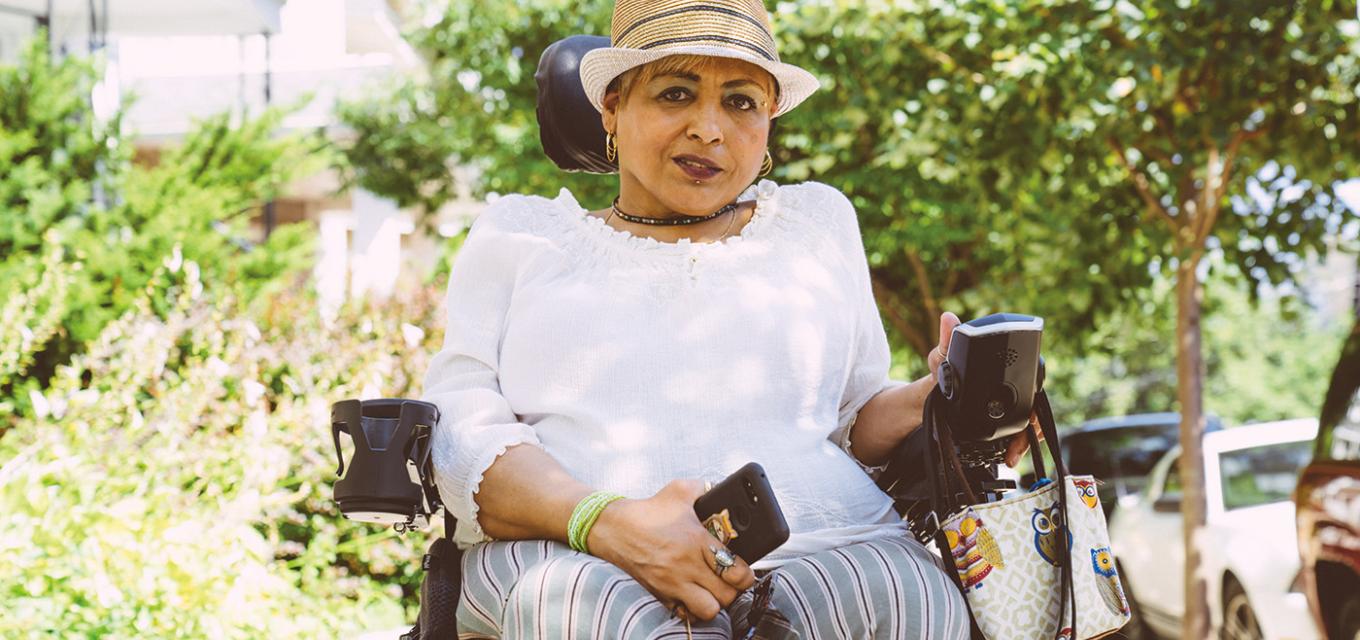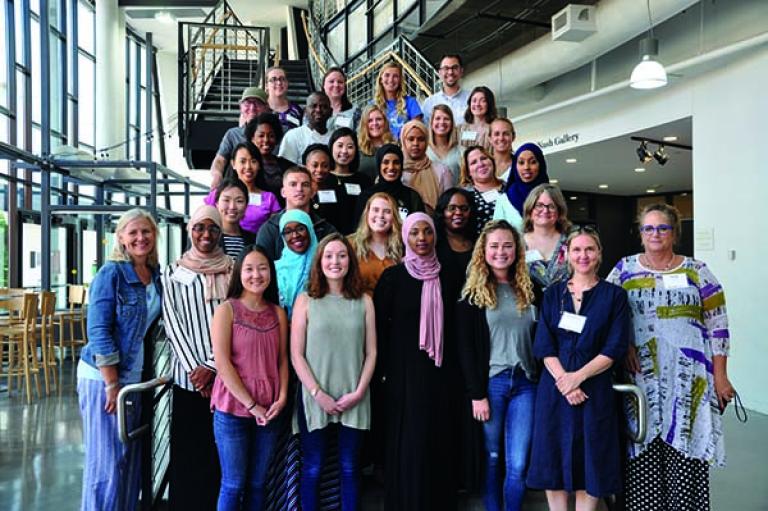2022 Spring / Summer

ICI’s inclusive roots
Bridging anti-ableism and anti-racism.
CEHD’s Institute on Community Integration (ICI) adds an often-overlooked dimension to the fight for racial equity. Named and founded on Civil Rights-era principles of breaking down exclusionary barriers, ICI conducts research and provides training and education that takes aim at disparities experienced by people with intellectual and developmental disabilities from underrepresented racial and other groups.
Already facing daunting obstacles to employment, education, and equitable treatment in community life, people with disabilities who also identify as Black, Indigenous, and People of Color (BIPOC) experience even higher hurdles.
“No one has greater disparities than people of color who have disabilities,” says ICI Director Amy Hewitt. “Our charge at ICI is to bring attention to the need for our communities to promote full inclusion and develop policies and practices that address these disparities.”
ICI’s disability research, training, and education is rooted in an anti-ableism perspective that rejects all forms of bias, and much of its work specifically explores the intersection of race and disability.
Rebecca Dosch Brown, interdisciplinary education director at ICI, is leading the creation of a disability justice workshop series for Minnesota State, the nation’s third-largest system of state colleges and universities, to address ableism in the learning environment, including the intersection of racism, sexism, and other “isms” with ableism. The series aims to present a vision for what an inclusive campus looks like.
“We’re moving beyond compliance with the [Americans with Disabilities Act] law and looking at what meaningful inclusion is—and that means structural and attitudinal change,” Dosch Brown says.
Dosch Brown, whose son is a biracial adult with disabilities, became frustrated watching him experience racism and ableism.
“It made me ask what I could do as an educator to call attention to these attitudes that are just wrong and harmful to people,” she says. From that frustration, she began incorporating insights and tips into her disability presentations for recognizing ableism and racial bias. That work led to the creation of the Minnesota State Disability Justice series, which she expects to adapt for other organizations in the future.
Other ICI projects focusing on antiracism include:
Autism studies: The institute’s ongoing studies of autism spectrum disorder prevalence in diverse racial and ethnic communities highlights important public health needs, and its targeted outreach to specific underserved communities through videos and other messaging addresses the critical need for early intervention.
Fellowship program: The Minnesota Leadership Education in Neurodevelopmental and Related Disabilities (MNLEND) fellowship develops the next generation of interdisciplinary leaders in the neurodevelopmental disabilities field, in partnership with the School of Medicine, the College of Liberal Arts, and more than a dozen other departments and centers across the University. MNLEND actively recruits fellows from underrepresented racial, ethnic, socioeconomic, religious, disability, and other backgrounds, and its curriculum explores racial disproportionality and culturally responsive leadership in the disability field.
Medical research: Under a new project for the Centers for Disease Control and Prevention, ICI will estimate the number of people of all ages living with spina bifida, and explore whether prevalence varies among sociodemographic or other factors.
Surveys: In 2020 and 2021, ICI conducted the largest surveys to date among direct support professionals (DSPs) who serve people with disabilities, uncovering racial disparities in pay and hours worked.
Inclusive 4H: With funding from the Minnesota Department of Human Services, Hewitt, Charity Funfe Tatah Mentan, and Sarah Hall are developing a replicable model to transform Minnesota 4H clubs to be fully inclusive of youth of color with intellectual and developmental disabilities (IDD) by expanding the knowledge and skills of the 4H workforce.
Research forum: In August, ICI will host a State of the Science conference that will focus on approaches to advancing the highest quality of community living for people with IDD from diverse racial, ethnic, linguistic, and cultural backgrounds. The event will generate a list of research, practice, and policy priorities that, if implemented nationally, will greatly enhance access and equity for people with disabilities from diverse backgrounds.
“The goal of this working meeting is to develop a vision, priorities, and practical approaches for research and policy in IDD focused specifically on individuals from diverse racial, ethnic, linguistic, and cultural backgrounds,” says Julie Bershadsky, director of ICI’s Community Living and Employment focus area. “Too often, these populations have been left out of research activities, either explicitly or implicitly. Our goal is to move past describing the challenges and into developing solutions, including methodological approaches for doing research and creating policies not just on diverse populations, but with them.”
Looking inward, ICI includes diversity, equity, and inclusion goals in its strategic planning objectives and offers monthly meetings exploring different aspects of inclusion.
Macdonald Metzger, director of outreach at ICI, helps lead several diversity initiatives in addition to his work on the MNLEND program, including monthly lunch forums, which are open to all staff.

“At ICI, we believe deeply in social justice and equal economic, political, and social rights and opportunities for all people, and I mean this in the strongest terms,” Metzger says. “Through independent surveys, we know that people are learning more about racism at our monthly events. We’re on a journey to become a model on campus of collective strategies to end racism in the workplace, and these efforts can only help us in achieving ICI’s mission of inclusion. We’re on the right track and making progress, and we’ll continue to have these open discussions so all ICI employees feel it is a welcoming place to work.”
-Jane Stewart